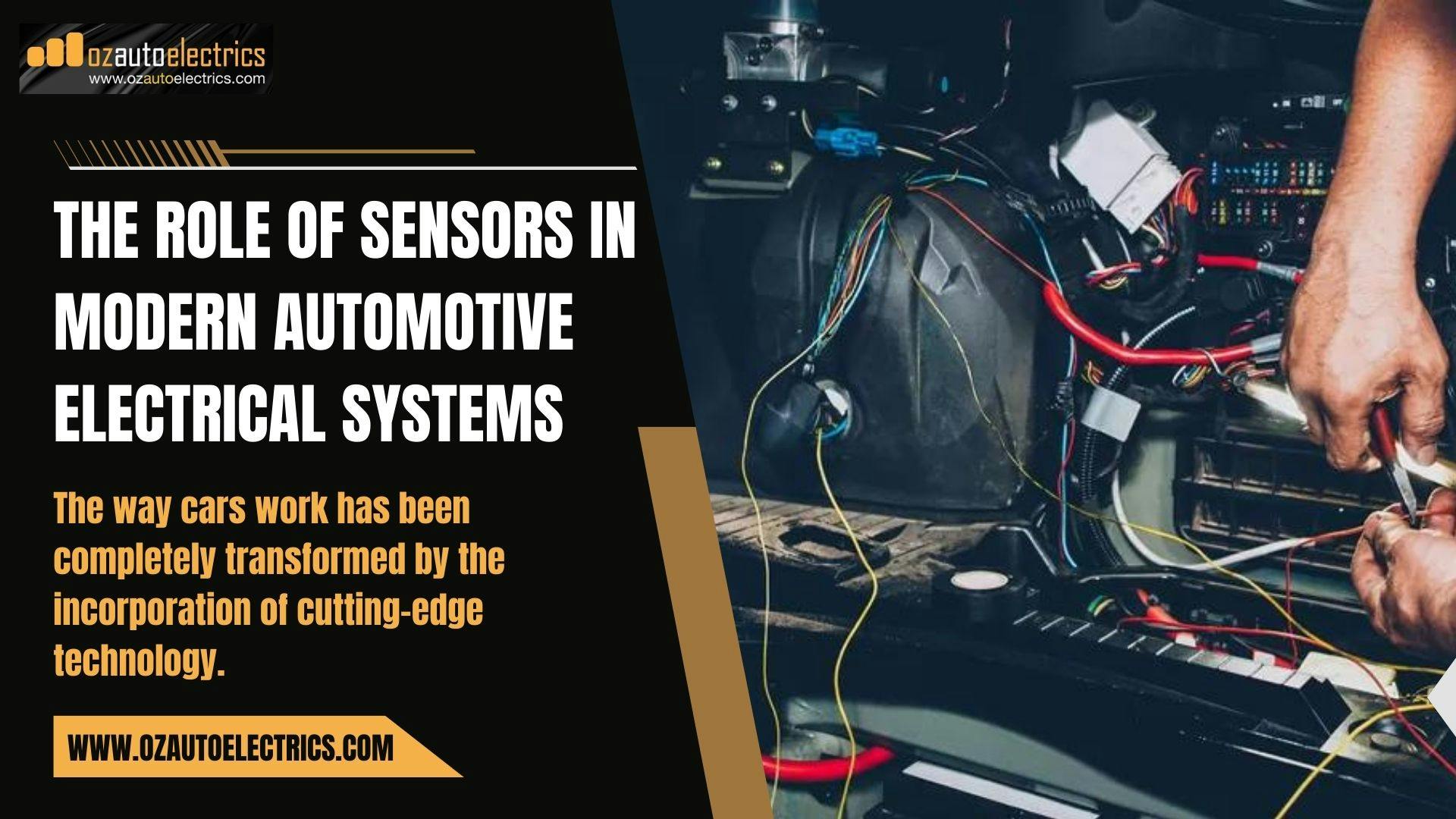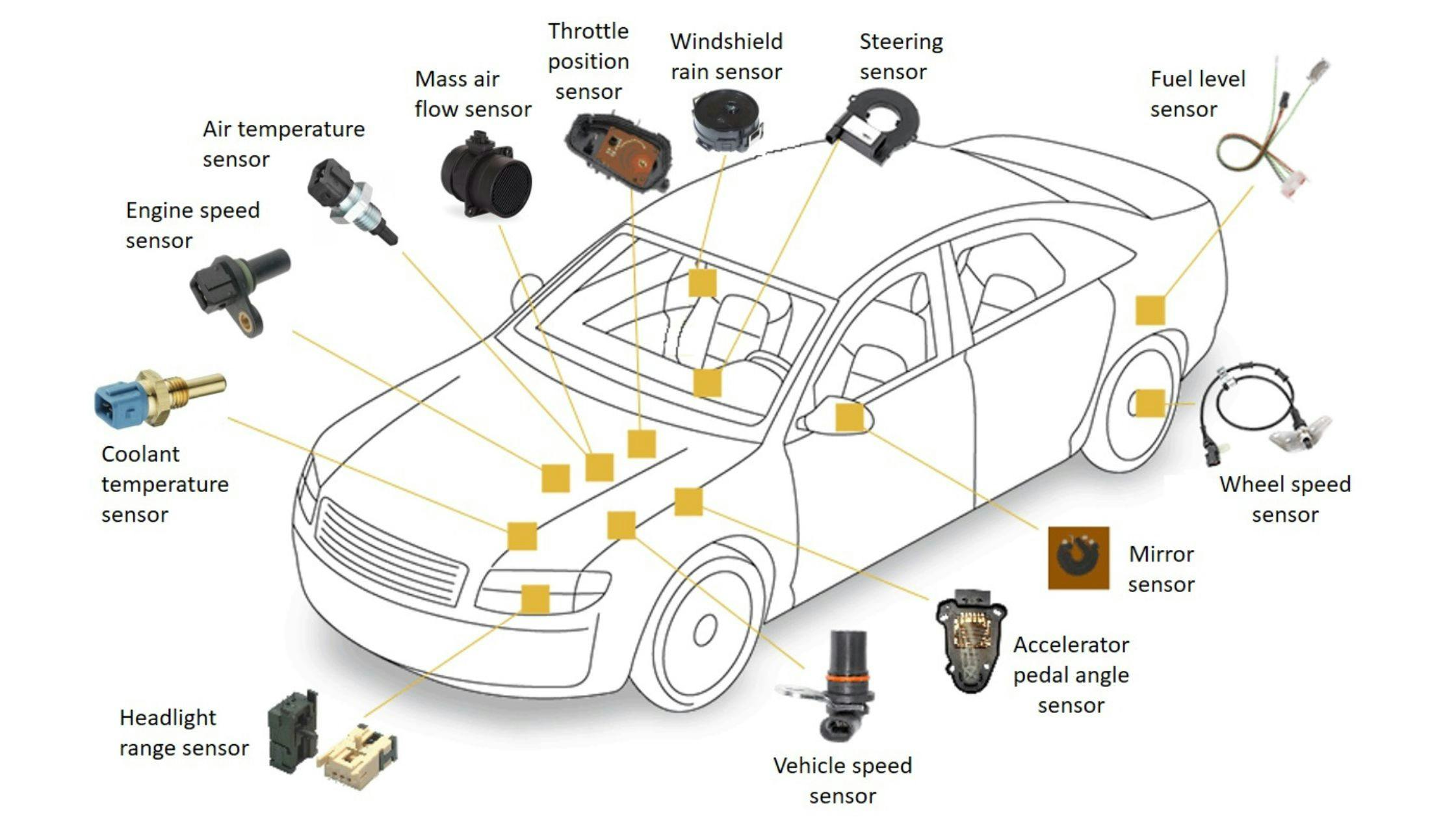The Role of Sensors in Modern Automotive Electrical Systems

The way cars work has been completely transformed by the incorporation of cutting-edge technology. The complex networks of sensors built into contemporary automotive electrical systems are essential to this shift. Sensors are essential for maintaining the best possible functioning and performance of automobiles, from checking engine performance to improving safety features.
1. Introduction to Sensors
Automobile sensors act as the sense organs of the mechanical nervous system of a car, continuously acquiring information and transmitting it to different parts of the auto electrical system. These sensors may detect and measure Numerous factors such as temperature, pressure, speed, location, and more. Sensors improve performance and economy by precisely controlling and managing vital operations by giving instantaneous information to the vehicle's integrated computer systems.
2. Types of Automotive Sensors

There is a diverse array of sensors utilized in modern automotive electrical systems, each serving a specific purpose to facilitate smooth operation and optimal performance. Some of the most common types of automotive sensors include:
Engine Sensors: These sensors monitor various parameters related to engine performance, such as air intake temperature, coolant temperature, oxygen levels in the exhaust, and crankshaft position. By continuously monitoring these variables, engine sensors help optimize fuel efficiency, emissions, and overall engine performance.
Safety Sensors: Safety sensors are integral to advanced driver assistance systems (ADAS) and other safety features in modern vehicles. These sensors include technologies such as proximity sensors, collision detection sensors, lane departure warning sensors, and tire pressure monitoring sensors. By detecting potential hazards and providing warnings or interventions, safety sensors help prevent accidents and mitigate risks on the road.
Environmental Sensors: Environmental sensors measure external factors such as ambient temperature, humidity, and atmospheric pressure. These sensors contribute to climate control systems, adaptive lighting systems, and other comfort features, ensuring a pleasant driving experience regardless of external conditions.
3. Importance of Sensor Maintenance and Calibration
While automotive sensors are designed to operate reliably under various conditions, they require regular maintenance and calibration to ensure accuracy and longevity. Over time, factors such as dirt, debris, and mechanical wear can affect sensor performance, leading to inaccuracies or malfunctions. Routine maintenance tasks, such as cleaning, inspection, and calibration, are essential to keep sensors operating at peak efficiency and prevent potential issues down the line.
4. The Future of Automotive Sensor Technology

As automotive electrics continue to evolve, so will the sensors' capabilities in modern vehicles. Advancements in sensor technology, such as the development of more compact and energy-efficient sensors and the integration of artificial intelligence and machine learning algorithms, promise to further enhance the performance, safety, and efficiency of future automotive electrical systems.
Wrapping Up
Sensors play a fundamental role in modern automotive electrical systems, enabling precise control, monitoring, and optimization of vehicle performance and functionality. As vehicles become increasingly reliant on advanced electronics and automation, the importance of sensors will only continue to grow. For professional maintenance, repair, and installation of automotive electrical components, trust the experts at OZ Auto Electrics. Contact us today to ensure your vehicle's electrical system is operating at its best.
